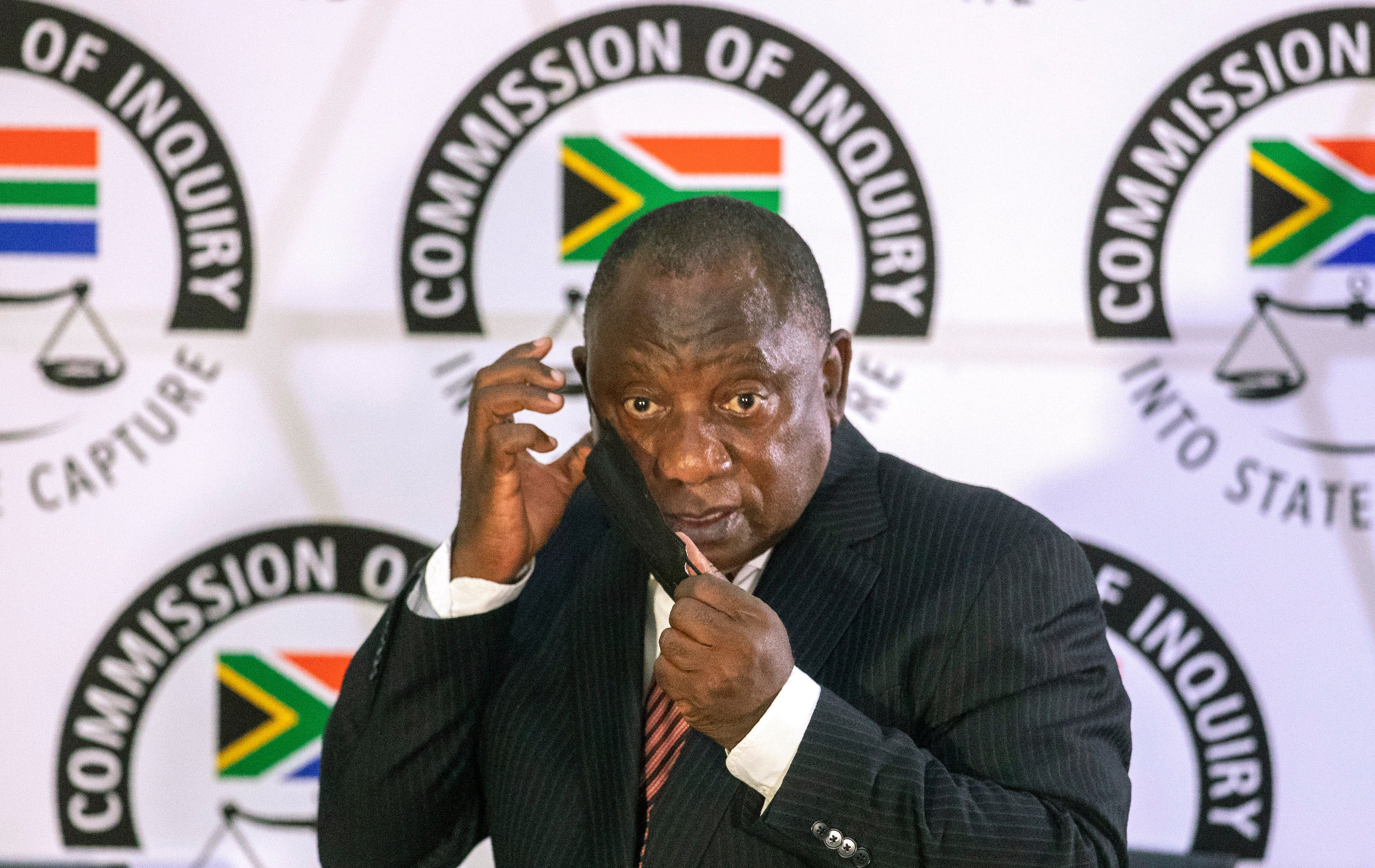South African president Cyril Ramaphosa admits corruption was rife under Jacob Zuma
Incumbent president defends decision not to resign as Zuma’s deputy

Your support helps us to tell the story
From reproductive rights to climate change to Big Tech, The Independent is on the ground when the story is developing. Whether it's investigating the financials of Elon Musk's pro-Trump PAC or producing our latest documentary, 'The A Word', which shines a light on the American women fighting for reproductive rights, we know how important it is to parse out the facts from the messaging.
At such a critical moment in US history, we need reporters on the ground. Your donation allows us to keep sending journalists to speak to both sides of the story.
The Independent is trusted by Americans across the entire political spectrum. And unlike many other quality news outlets, we choose not to lock Americans out of our reporting and analysis with paywalls. We believe quality journalism should be available to everyone, paid for by those who can afford it.
Your support makes all the difference.Corruption was prevalent in South Africa under Jacob Zuma’s leadership, his successor Cyril Ramaphosa has told an inquiry.
Appearing before a graft inquiry concerning the previous administration, the incumbent president, who served as Zuma’s deputy from 2014 to 2018, explained why he did not resign his position as a result of his party’s alleged misconduct.
Mr Ramaphosa said he chose to “remain but to resist”, claiming his goal of tackling corruption would have been “significantly impaired” if he had vacated his position.
He later won the African National Congress (ANC) leadership contest and helped to remove Zuma from office. He subsequently promised to crack down on graft during his presidency.
Referring to his decision to continue as Zuma’s deputy, he told the inquiry panel: “With the benefit of hindsight, I am certain that this was the necessary and correct course of action.”
He acknowledged, however, that some will still criticise him for not resigning. After saying that the ANC will now be “very serious” in rooting out corruption, he added: “You may say why didn’t you do so over a period of so many years but it’s better late than never.”
Led by acting chief justice Raymond Zondo, the inquiry to which Mr Ramaphosa gave evidence is examining whether three brothers were unfairly awarded government contracts by using their personal ties with Zuma.
The businessmen Ajay, Atul and Rajesh Gupta, who no longer live in South Africa, have denied this version of events, while Zuma himself has denied that corruption was widespread during his time in office.
Zuma was given a 15-month prison sentence for contempt this year, after failing to obey a court order to appear before the Zondo inquiry.
The former leader’s jail term sparked some of the worst violence seen in South Africa in the post-apartheid era.
More than 300 people in KwaZulu-Natal and Gauteng died in the riots and looting, which is estimated to have caused more than a billion dollars worth of damage.
Last week, Zuma was taken to hospital, meaning that a separate corruption case against him has been pushed back until next month.
Ace Magashule, the suspended ANC secretary-general, will face corruption charges in October in a separate case.
Additional reporting by agencies
Join our commenting forum
Join thought-provoking conversations, follow other Independent readers and see their replies
Comments